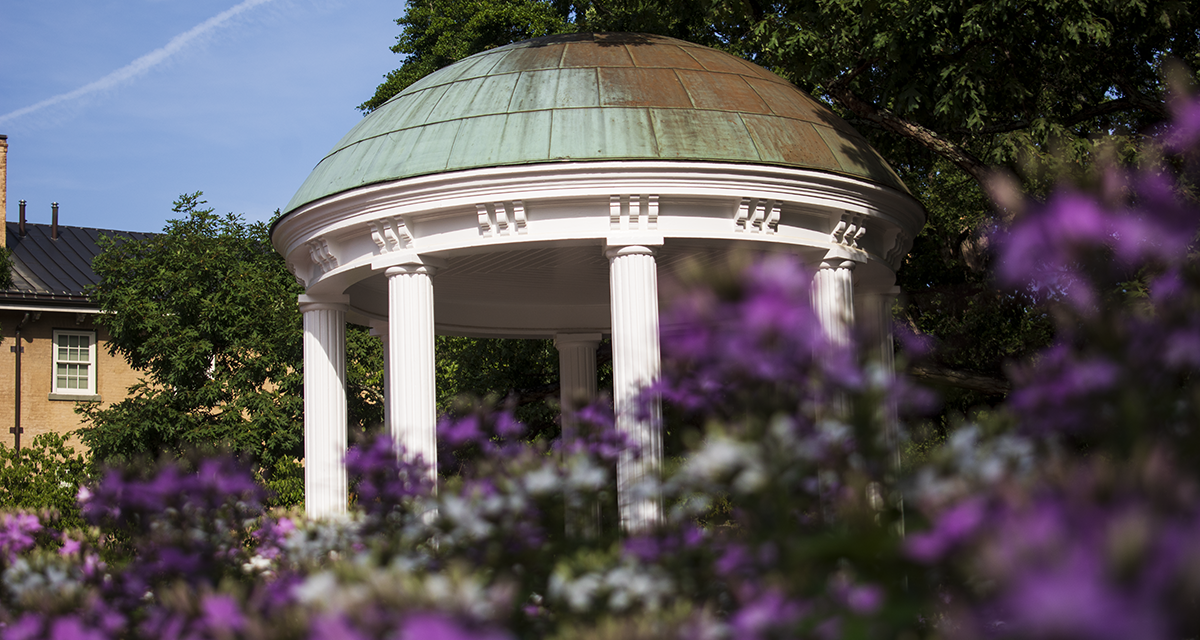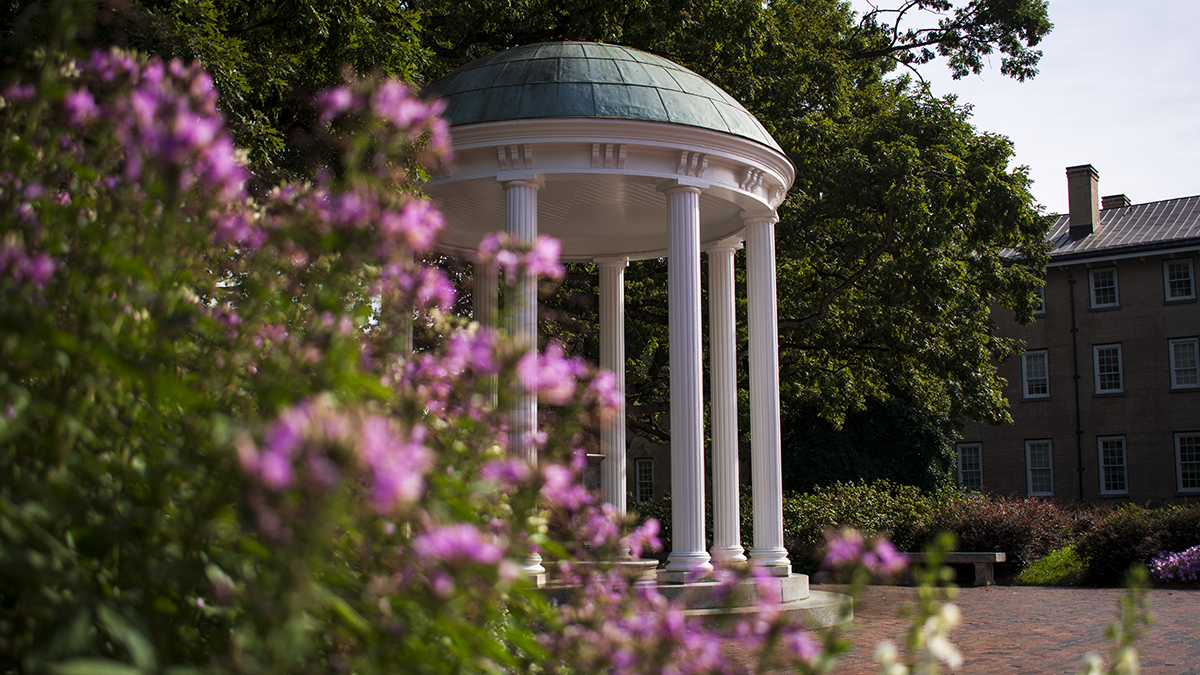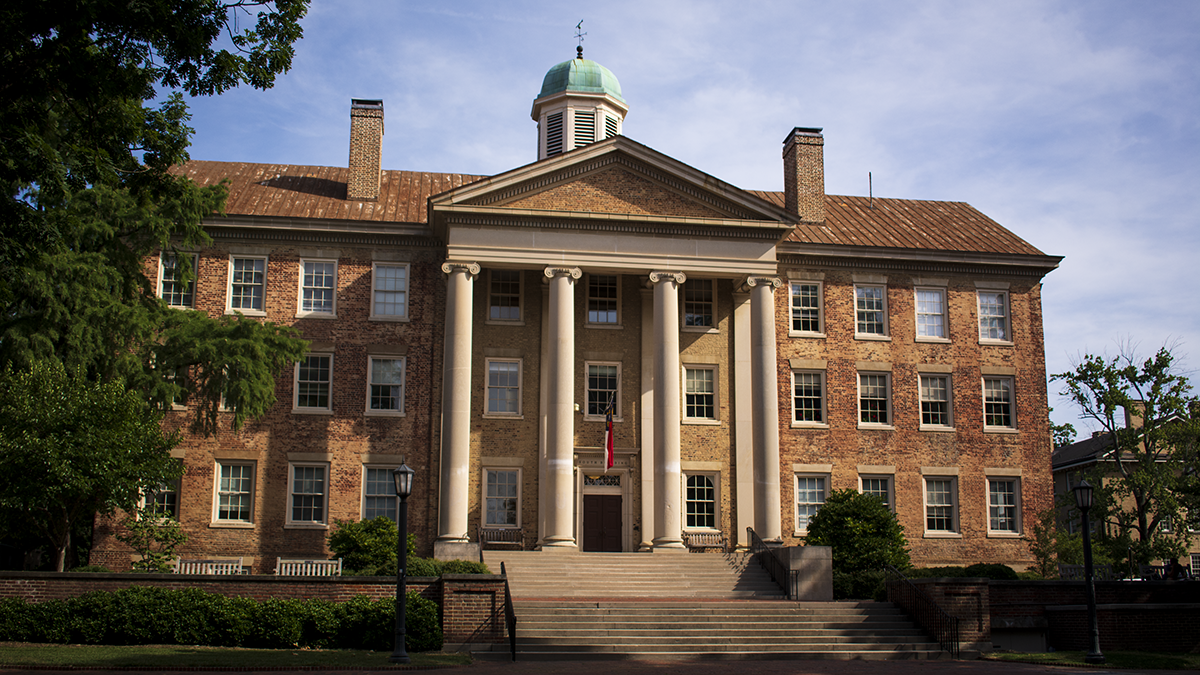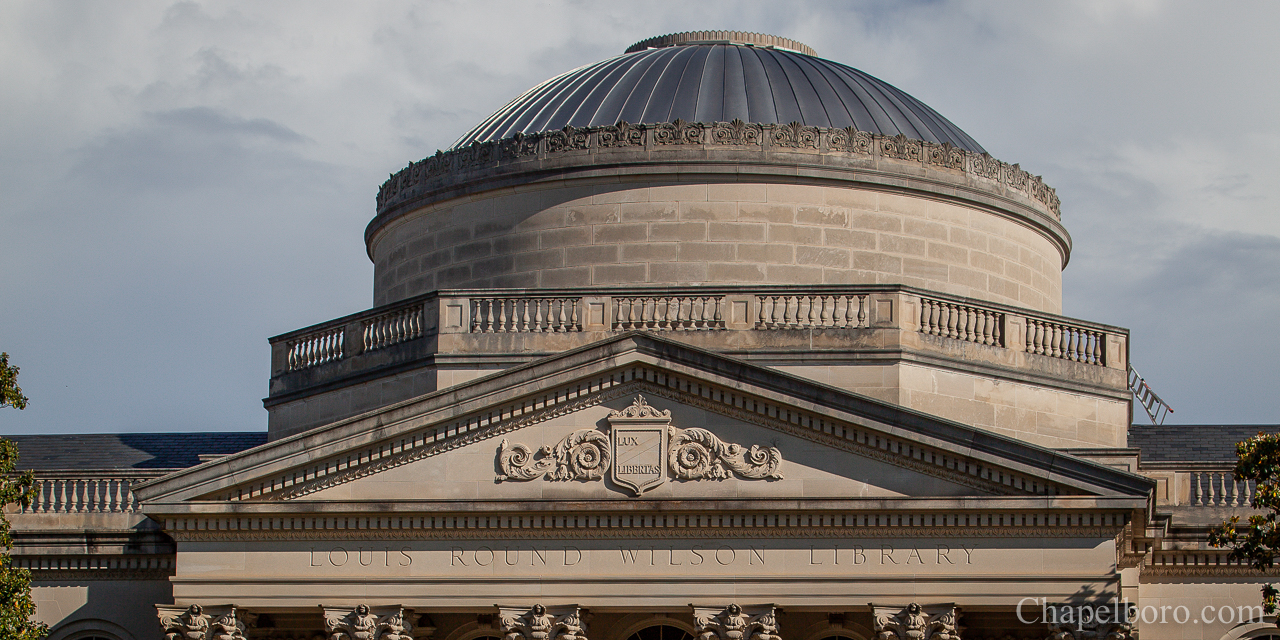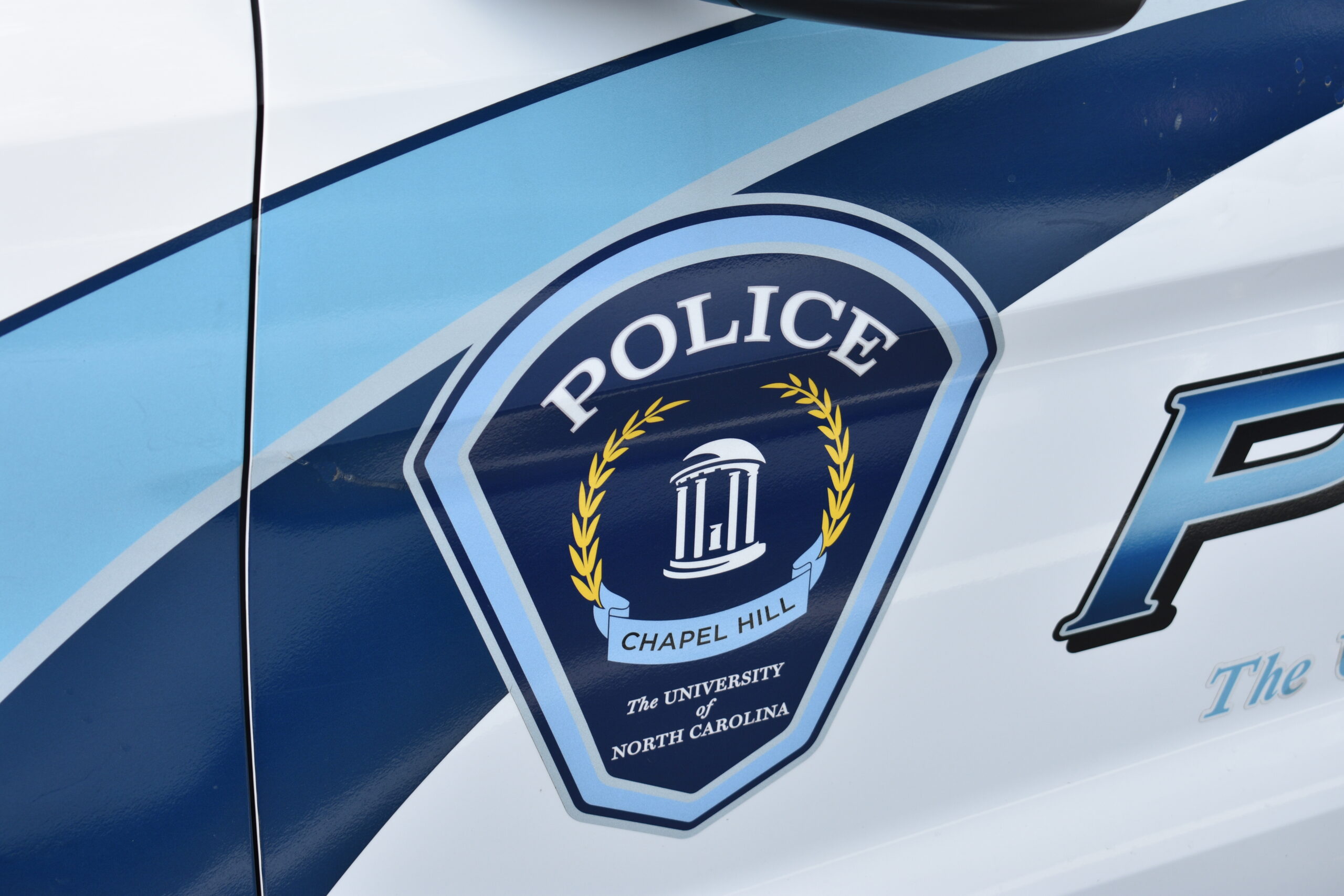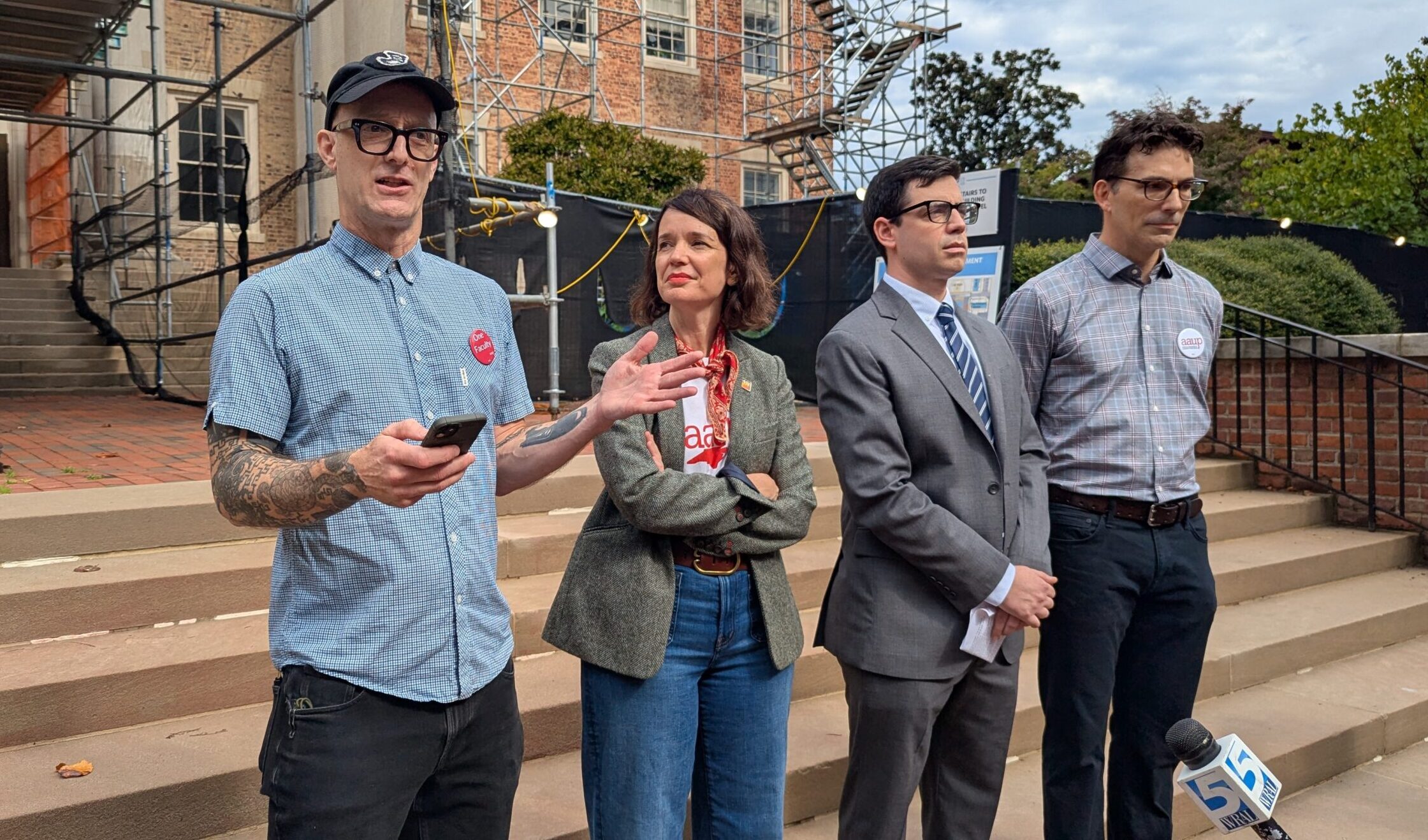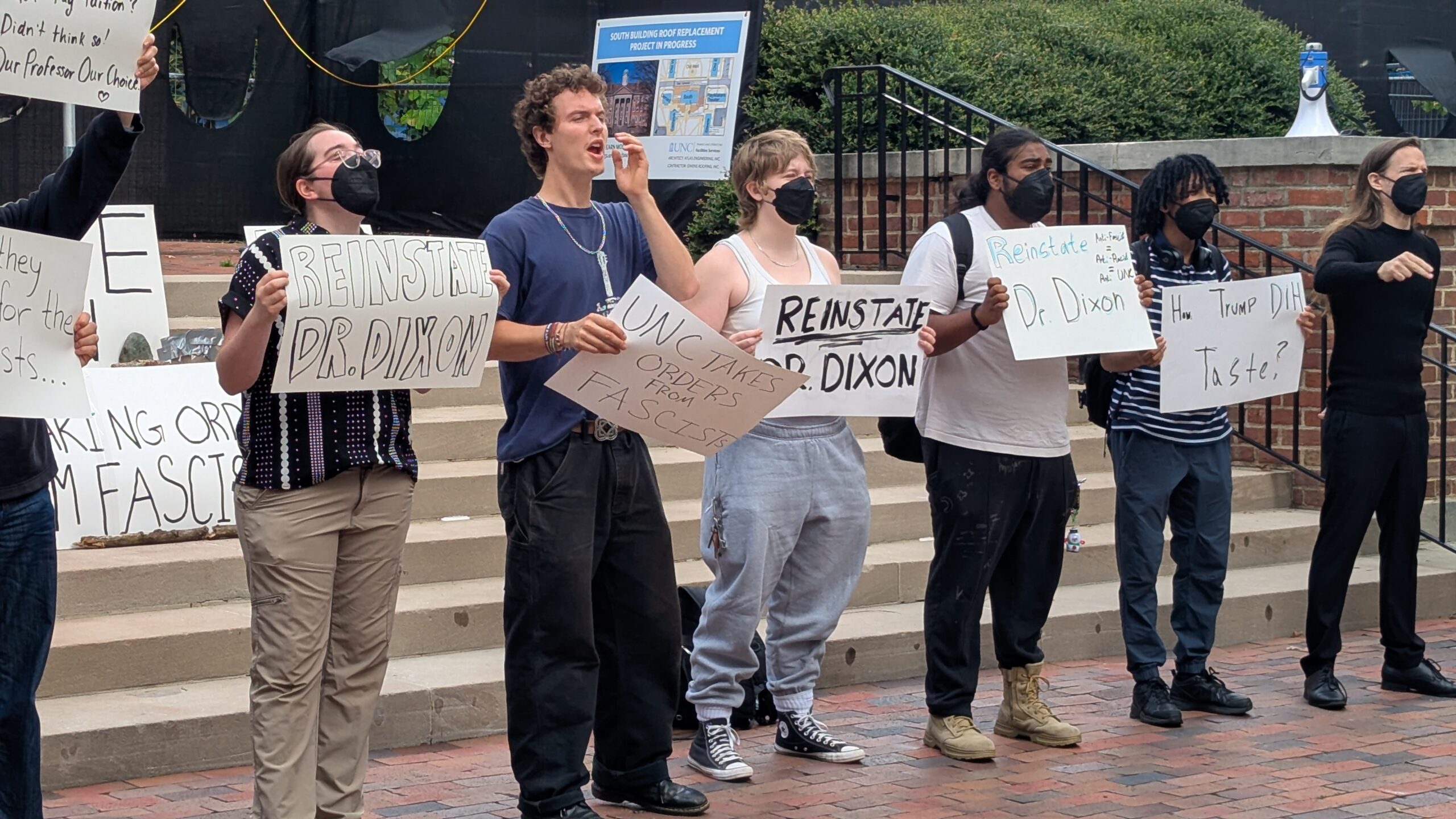The UNC Faculty Executive Committee had scheduled an emergency meeting for Monday even before the university decided to move to a remote learning model for the rest of the fall semester. During it, UNC leadership provided insight and details into how the change will be conducted.
Classes for the fall semester began at UNC one week ago, on August 10. Over that week, the university had 135 campus community members test positive for COVID-19, a significant increase from its previous weeks as students returned. With a percent positive testing rate of more than 13 percent, UNC Chancellor Kevin Guskiewicz cited this as a driving data point for the university’s decision to “de-densify” campus.
“This is certainly not what we were hoping for this fall semester,” he said, “and I’m terribly disappointed for the students who wanted to be here and followed community standards. Our first priority has always been our community’s safety and we said we would respond to the situation as it evolved. The situation has changed and we believe taking these actions is necessary at this point.”
The chancellor cited Thursday and Friday as a turning point, as UNC began to alert students about clusters of coronavirus cases reported in residence halls. Guskiewicz defended the public health guidelines put forth in the university’s Carolina Roadmap plan meant to help bring students back safely, saying they saw compliance by most students around campus. He pointed to off-campus incidents as factors that played more into the spread of the virus than anticipated.
“We were taking notice and learning of where we needed to adapt things,” Guskiewicz said of the initial weeks. “It’s the socialization piece that began to take place outside the boundaries of campus and beginning to bring [the virus] back into the residence halls. I’m proud of what we put in place for the infrastructure of the classrooms, dining halls and Student Union. We will continue to learn from this.”
The Carolina Roadmap for Fall 2020 implemented those changes and others to the campus operations, and is in part what led the university to make the call for exclusively remote learning, described by leadership as an “off-ramp.”
Provost Bob Blouin echoed similar sentiments as Guskiewicz, saying to the committee members and faculty the university’s plan took proper steps to mitigate the spread around campus. But he also said the plan, which UNC announced in May, was based on elements that did not materialize. Positive cases continue to rise around North Carolina and the U.S. has largely failed so far to flatten the curve or improve widespread availability of testing.
“That didn’t turn quite out the way we had expected,” said the provost. “In many respects, the roadmap was built upon some of those assumptions. But I don’t apologize for trying, for giving this campus the opportunity to return to its mission on behalf of the interests of the people of North Carolina.”
Many of the questions asked by the Faculty Executive Committee regarded what the university will do now, both for students’ learning environment and living situations. With classes just having started and students given a two-day notice before the switch to exclusively remote learning, faculty wondered whether a pause or cancellation of instruction will be implemented over the next few days. University leadership on the call said it would consider that, since students are expected to take several days to return to their permanent address. While the university will not be mass-testing students as they leave, officials said Campus Health services will continue to remain open and students could be tested if worried about the safety of their families.
There will be some students, though, who remain. Associate Vice Chancellor for Student Affairs Jonathan Sauls said students from other countries, far-away states, athletes and a select group of others will be given the opportunity to stay on campus. He said the plan will be to lower occupancy of rooms in residence halls to 20-25 percent and will transition students away from buildings with hall-style bathrooms. For the 177 students in isolation and 349 in quarantine, they are encouraged to stay until their monitoring periods are complete.
Sauls said students who remain in town should continue their awareness toward local government health guidelines, saying offenses like holding large gatherings or not properly social distancing would still result in enforcement by either the university or local authorities.
“Getting a snippet of a video is not in all cases going to be sufficiently identifying,” said Sauls, referencing videos captured by community members of UNC students before classes began. “But any students, whether on or off-campus, who is engaged in a violation of university policy, remains subject even after these changes to administrative action.”
For students who do return home, housing fees will be refunded. Sauls said further information will be released to families shortly. Blouin also indicated UNC might alter its tuition deadline, which was 5 p.m. on Monday, less than two hours after the university decided to move back to all-remote courses.
University leadership also faced questions about how UNC will rebuild not only its national reputation following this change, but also its local reputation. Members of Chapel Hill and Orange County local governments made several suggestions the university begin the fall semester online.
“We have work to do repair those relationships in town,” said Guskiewicz in response. “We’ll do everything within my power to create the right learning environment, conduct our world-class research and continue our service to the state. Whether it’s done in-person or remotely, we will continue to lead.”
When asked by faculty about the feasibility of trying this hybrid instruction model again in the spring, both Blouin and Guskiewicz said it is too early to tell. More data, from within the UNC community, state and country, will be needed to prevent such spread from being seen again later in the pandemic.
“This thing is not going away,” said Guskiewicz. “We are going to be sitting here, likely in December, January and February talking about some of these issues. We’ll be trying to move forward as a campus and trying to help other universities move forward.”
Chapelboro.com does not charge subscription fees. You can support local journalism and our mission to serve the community. Contribute today – every single dollar matters.

